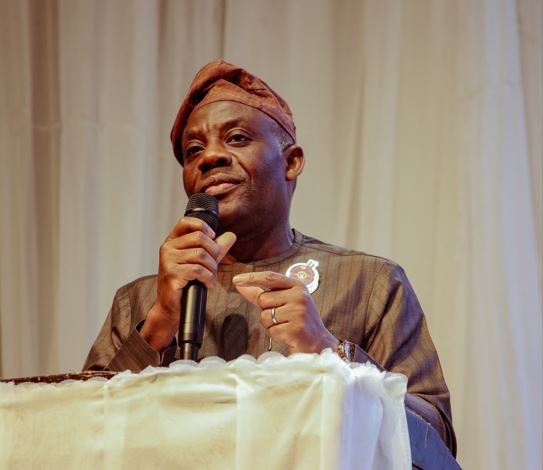
Dr. Tunji Alausa, Nigeria’s Minister of Education, has proposed a major shift in the country’s education system, advocating for the transition from the current 9-3-4 structure to a 12-4 model. Speaking at the 2025 Extraordinary National Council of Education (NCE) meeting held in Abuja on Thursday, Alausa emphasized that the proposed reform is aimed at aligning Nigeria’s education system with global standards, ultimately enhancing learning outcomes and preparing students for better tertiary education opportunities.
Education Reform Proposal: 12-Year Basic Education System
During his address, Dr. Alausa acknowledged the strengths of the existing 9-3-4 model but highlighted its limitations, particularly the challenges it presents for students seeking to advance their education. He proposed the 12-4 system, which would extend basic education to 12 years, followed by 4 years of tertiary education. Alausa argued that the transition would create a more structured, uninterrupted learning experience, leading to improved educational outcomes and a better-prepared workforce.
“A 12-year basic education model will ensure a continuous, uninterrupted curriculum, promoting better standardization and fostering quality assurance in the education system,” Alausa stated. He further explained that the reform would help foster a more educated population, contributing to Nigeria’s economic development.
Addressing the 16-Year Tertiary Admission Policy
Another key issue discussed at the NCE meeting was the policy that mandates students to be at least 16 years old before gaining admission into tertiary institutions. Dr. Alausa expressed concerns about the policy’s impact on exceptionally gifted students who finish secondary school at 16 but are delayed from entering university until they are 18.
“The delay in university admission for gifted students may hinder their development and negatively impact their future prospects,” Alausa warned. He stressed the importance of providing talented students with the opportunity to pursue higher education without unnecessary delays, as stifling their academic progress could exacerbate mental health challenges.
Strengthening Technical Education for National Development
In addition to discussing basic education reform, Alausa also highlighted the government’s efforts to bolster technical education in the country. He revealed plans to convert federal science and technical colleges into federal technical colleges, a move designed to bridge the skills gap in Nigeria’s labor market.
“Technical education allows a nation’s human and natural resources to be harnessed more effectively,” Alausa said, emphasizing the critical role of technical training in driving national development and fostering industrial growth.
NCE Meeting: A Platform for Educational Policy Reform
The National Council of Education (NCE), Nigeria’s highest policymaking body in education, convened to discuss various educational matters, including the proposed 12-year education model and the approval of a national policy on bullying. As the meeting continues to shape the future of Nigeria’s education system, Alausa’s proposal is seen as a significant step towards aligning the country’s educational framework with global standards and addressing key challenges in the sector.
